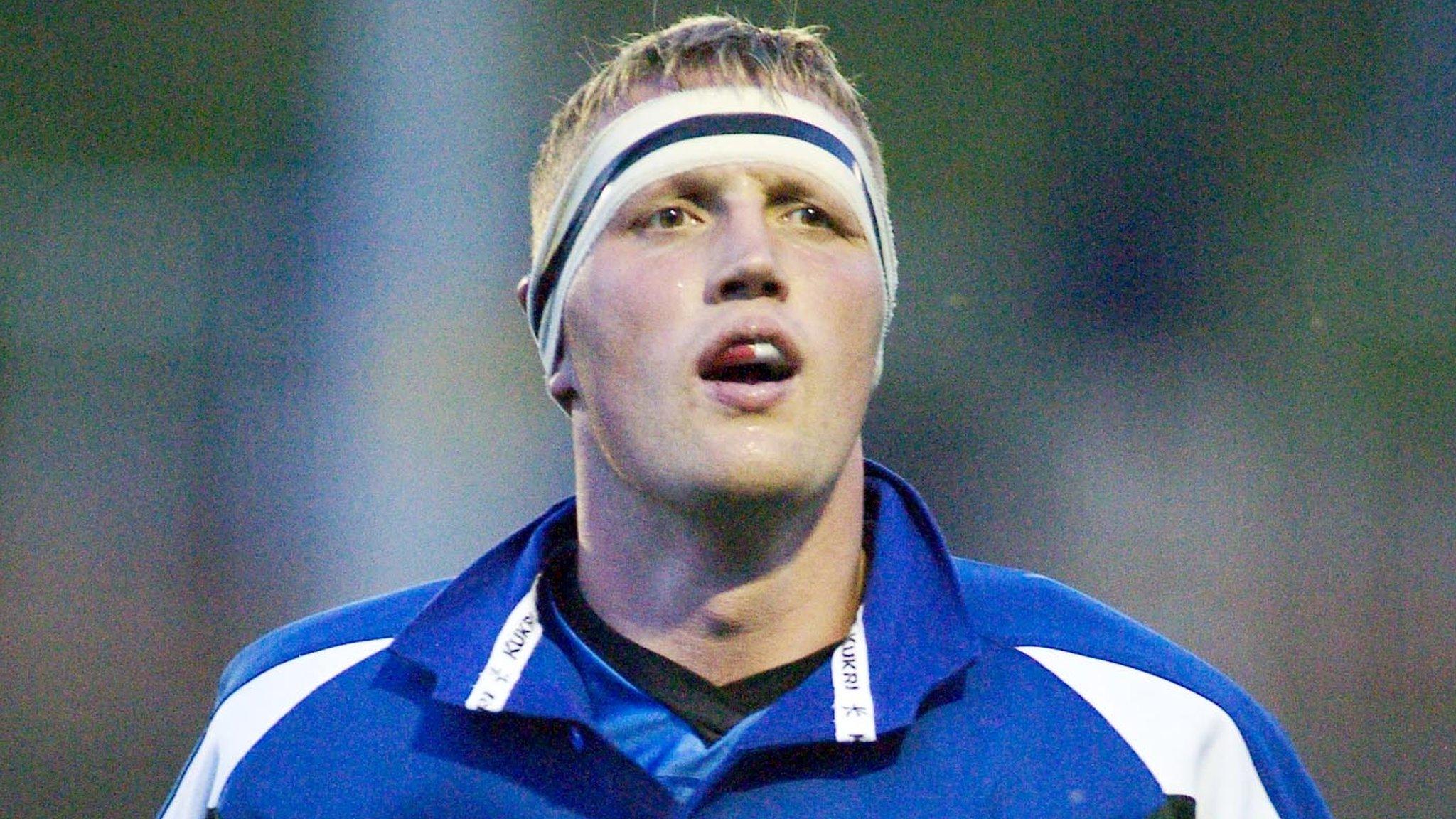Doddie Weir: 'I don't blame rugby for my MND'
- Published
Doddie Weir says his focus now is "driving to secure a solution" to MND
Two months ago former Scotland rugby international Doddie Weir announced he has motor neurone disease. After careers as a sportsman, farmer and after-dinner speaker, he spoke to BBC Scotland's John Beattie about his greatest challenge yet.
Sitting in the stands at Melrose Rugby Club, Doddie Weir, is in positive mood.
It is more than 18 months since the 47-year-old first noticed the symptoms of his motor neurone disease (MND). They began when he trapped his hand in a door.
"Being an old rugby boy come farmer I thought 'ah, that was a bit tender' - and I lost a bit of power in my hand," he recalls.
"I thought maybe I'd broken a little bone but it would be OK. It would soon mend and fix but during the winter months it got progressively worse and I lost a lot of power in my left hand.
"Not long after that the twitching started in my left hand and that was the giveaway. There's something wrong here."
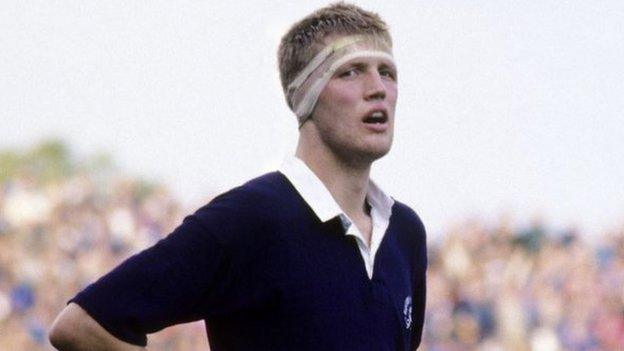
Doddie Weir won 61 caps for Scotland during his playing career
When he finally went to his doctor, he was referred to a specialist and was soon given the most devastating of diagnoses.
Motor neurone disease involves progressive damage to the nerves, leading to muscle wastage. There is currently no cure and while there are exceptions - including the physicist Stephen Hawking - about half of sufferers die within three years of developing symptoms.
At the moment it mainly affects Doddie's hands, making everyday tasks like fastening a button difficult.
"If you were to put a sponge cake in front of me I would find it very difficult to squash it," he explains.
Doddie Weir is not the first rugby international to face MND. In 2011, South Africa's Joost van der Westhuizen revealed he had been diagnosed with the condition.
Some researchers have suggested that repeated head injuries can increase the chances of developing the disease.
Could Doddie Weir's rugby career be to blame for his current condition? He has asked himself and his doctors that question but he remains sceptical.
"We have maybe 450 to 500 sufferers of MND in Scotland - and quite a large majority probably wouldn't have played rugby.
"I don't think there's any connection to it at the moment but the reason behind that is that there's maybe not a lot of studies put together, not a lot of work or focus put on MND at the moment in the world, so hopefully we can try and change that and try to find the solution."
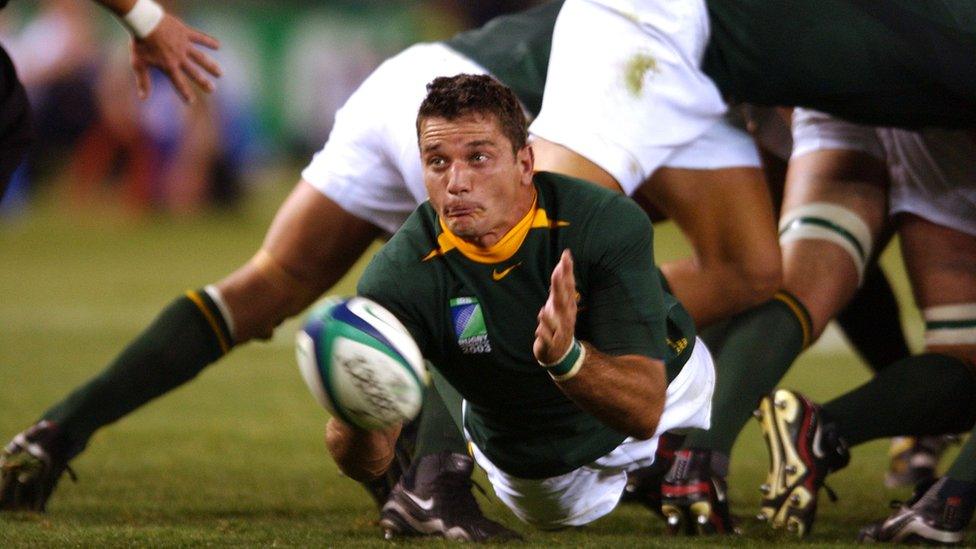
The work of fellow MND sufferer and former rugby international Joost van der Westhuizen has been an inspiration to Doddie Weir
Joost van der Westhuizen died earlier this year - but his final years while living with MND were an inspiration to Doddie.
During that time he set up the J9 Foundation which seeks to raise awareness as well as improve the emotional and physical care of MND sufferers. The most important tip, Doddie says, was the benefit of "positive thinking".
"He probably brought me on to understand what it was all about. I met him at Murrayfield a number of years ago. A very inspirational character.
"So with his J9 Foundation it was really the first port of call that I was going to do, to see what he's done before - because there's a frustrating part with MND and that's the solution. That's not been found yet. It's a terminal illness and that's quite hard to take."
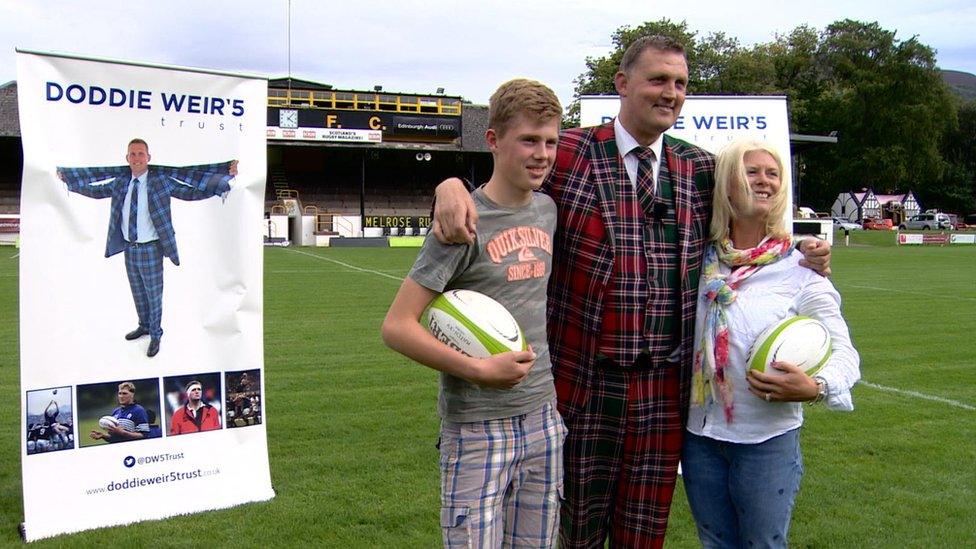
The support of family and friends has been tremendously important to Doddie Weir
The anguish Doddie feels is less for himself but more for his family. The normally cheerful exterior cracks for a few seconds as he speaks of his teenage sons.
"Any parent is worried about the future with their kids. I've got three young boys of 16, 15 and 13 - and you always want to grow up with them if you can - and that is the worry."
Since announcing his illness over the summer he has spent time with his family in New Zealand, building memories that will endure.
"Before that we went to Twickenham as well - which wasn't such a memory because Scotland got beat by 60 points," he jokes.
Doddie, who won 61 Scottish caps, has now set up the Doddie'5 Discretionary Trust - which makes use of his rugby shirt number - to provide practical and financial help to his family as his condition develops.
A foundation, My Name'5 Doddie, is also to be set up in the next few months to raise funds for research into a cure for MND and to provide grants to people living with the condition.
"Ultimately it's down to funding - it's all down to a bit of money. I think that's what lapsed before because there's not that many people with the condition and the drug companies think, don't want to be bothered with it."
He is under no illusions. He knows there will be dark times ahead - but he has a "driving focus" that will keep him going.
"You have to have a positive outlook - that's what the J9 boys were saying. Somebody has put this card into my hands and with that, I have got to try to make a difference - and hopefully we do."
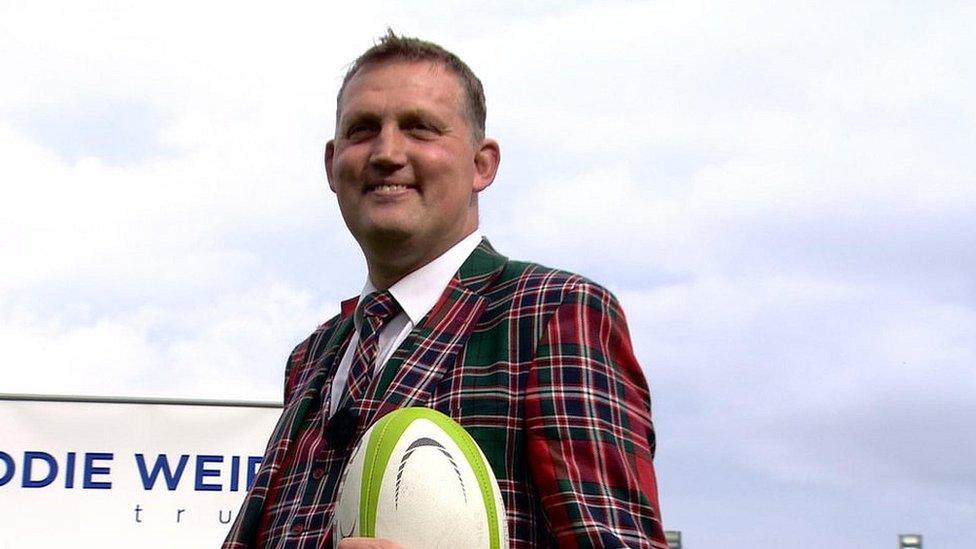
John Beattie's full interview with Doddie Weir will be broadcast on BBC Radio Scotland at about 12:40 on Tuesday 29 August.
- Attribution
- Published20 June 2017
